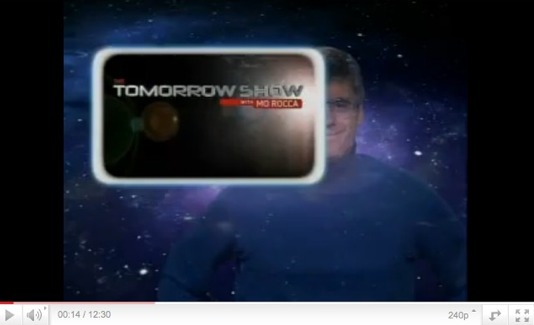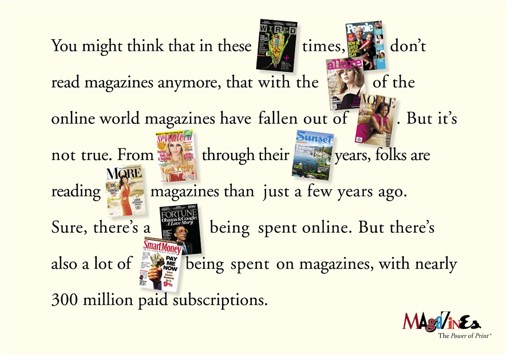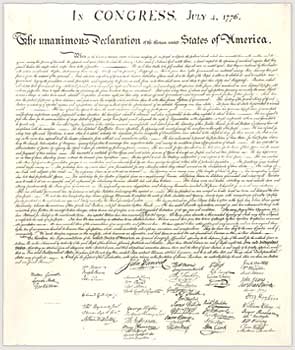Paper Doll Considers the Future of Paper
As I write this, today is all about a specific piece of paper. On the first Independence Day after I started writing Paper Doll, I merely shared the text of the Declaration, because no commentary was really needed. Nobody debates the weighty significance of that document in our nation’s history, nor, indeed, in the grand scheme of history, outright.
At a recent networking event, a new acquaintance inquired about my client work and then asked, somewhat bemusedly, if he’d heard correctly, that I blog about paper. He spat out the word paper as if we were discussing hoop skirts or the Whig Party. To this digital wunderkind, paper’s role in his life was as insignificant as the napkin with which he wiped away his pizza drippings. While he undoubtedly didn’t mean to be derisive, he was dubious that the subject of organizing paper had much impact now, or that it would in the future.
Upon reflection, it occurs to me that I answered a bit defensively. Having researched and prepared numerous presentations on the topic, I was able to provide statistical evidence on how and why Business Week’s 1975 prediction of the Paperless Office didn’t come to pass. And certainly, for my clients, and for the many readers who write in with questions and topic suggestions, the piles of paper, the deluge of documents, the clutter of scraps and statements continue to be problematic. But more and more often, to solve the needs of the more digitally-minded masses, I find myself offering technological solutions along with standard paper fixes.
Thus, on a holiday weekend where we celebrate the endurance of revolutionary (pun intended) ideas committed to paper, I find myself considering the future of paper, in all its forms. As I began to search the web, I was somewhat comforted by revisiting the pilot episode of The Tomorrow Show, Mo Rocca’s webcast about Tomorrow’s Paper.

(Go ahead. Watch it. We’ll wait.) Nonetheless, it’s intriguing to think, not just from an organizing perspective, but from a more general one, what’s going to happen with our paper?
Money — Certainly, paper money has its disadvantages. It’s easily lost or stolen, fares only moderately well after a few tumbles in the washer and dryer, fades, crumples, and can be eaten by pets. And paper money has competition. Electronic payment via credit card has existed for more than half a century, and similar payments via debit cards have encroached on the use of paper money for more than 25 years. Moreover, mobile payment, using cell phones as a digital wallet, began in Japan and now influences purchasing behavior worldwide.
Indeed, our neighbors to the north are eliminating the paper portion of paper money altogether. Starting in November 2011, in order to combat counterfeiters and increase currency durability, Canada will replace paper currency with money made of paper-like plastic polymers.
And yet, it is hard to imagine teaching your pre-schooler the relative value of money using toy cell phones. Will small businesses mount screen caps of their first digital dollars earned above the cash register card processor? Paper Doll believes that a combination of sentiment and various unfortunate truths about living at or below the poverty line (including an inability to afford the fees of using traditional banks) will keep cash as king for a while longer.
Checks — For years, Europeans have been laughing at the quaint use of checks by North Americans, as reflected in the first comment in a recent blog post on Apple issuing MobileMe refunds. Further, over the next seven years, Britain will begin outlawing the use of paper checks such that by 2018, “The check’s in the mail” (well, I guess in the UK, they’d say, “The cheque’s in the post!”) will be an antiquated reference, like dialing the phone or playing a record. The move will save $2 billion in paper processing and 45,000 trees, annually.
What about us? Aside from that nice $20 birthday check from Grandma or the oversized faux lottery check, we might not miss checks given how many people already use electronic funds transfer for online bill payment and credit or debit cards for point-of-purchase acquisitions.
Paper Doll is more worried about how the lack of checks (which, admittedly, I’ve almost entirely stopped using) will impact the already-slipping diligence with which people should oversee their money. I fear that when you cease to write checks, you’re even less likely to manually reconcile your “checkbook” or keep a register at all. And lack of organized control over financial information too often leads to lack of control over actual money.

it’s fairly obvious that although we’re more likely to read People in the tub than take our iPad in with us, magazines will also have to adapt or die. And can you imagine a child’s delight at reading a pop-up book or tracing a finger along the route of Harold’s purple crayon ever being paralleled by a digital device?
Phone Books — A few years ago, I wrote Phone Books: A Jaundiced Look at Yellowed Pages. Unlike many other types of paper, this product, at least, was something of which most of us were tired. While certainly we’re still mired in the opt-in/opt-out negotiation for the future of phone directories, the future looks a bit brighter for those hoping to say good riddance to bad paper.

Just last week, U.S. District Court Judge James L. Robart ruled that Seattle’s opt-out ordinance did not violate publishers’ First Amendment rights. In addition, he ruled that the benefits to the city, in terms of waste reduction and the privacy of residents, outweighed whatever burdens might be placed on the three litigant phone book publishers’ interstate commerce rights. Between May 2011 and last week, when Seattle residents were finally able to opt out of the books, and last week, 35,000 households opted out of receiving the books. Between digital alternatives and consumer dissatisfaction, the future of phone directories is coming to an end.
Maps — It seems likely that in the age of GPS apps built into our phones and cars, there’s little room in our future for paper maps, at least the kind that are impossible to fold into their pristine former arrangements and tucked neatly away in glove compartments. There’s a wealth of blog posts and discussion in the world of cartography on the impact of digital upon the traditional paper map, but none charmed me as much as a line from Peterman’s Eye:
…But no electronic display ever encouraged me to get delightfully lost the way studying a real map will do.
Indeed, how many young (and young-at-heart) adventurers have posted maps of their nation, their continent or their planet, using pushpins as markers to show where they’ve been and where they’ve dreamed of going? Paper Doll has a Doctors Without Borders world map affixed to a door, to ensure I can continue to learn geography, and understand the “where” behind the “what” on the news.
And can you ever imagine anyone getting excited about a Treasure GPS?
Letters — Sadly, between email, texting and the price of postage, most people don’t write letters anymore. I worry about the future of excellent greeting card shops, like the one owned by a friend, even as I jot off silly, ephemeral greetings via snarky SomeECards. And yet, ever hopeful, I still stand by what I wrote in Zing Went the Strings of My Heart: Organizing Your Love Letters.
The more I thought about the future of paper, the more my thoughts spiraled. To Do lists have become To Do apps, which I continue to cover, despite my love of a good paper list and the visceral satisfaction of checking off completed tasks. What about coupons? Even as Extreme Couponing captivates the nation,

I can’t imagine that location-based digital couponing programs like Yowza or the new American Express/Foursquare project won’t slowly overtake clipping coupons from the newspaper…and not only because of the demise of the newspaper.
Then I thought about birth and marriage certificates, passports and other essential documents that are as meaningful to us as individuals as something like the Declaration of Independence is to us as a nation. While holograms and RFID chips are being added to passports, and municipal governments store vital documents digitally, there does not yet seem to be an alternative to paper versions of these legal records.
In imagining the future of paper, I keep coming back to the concept I’ve shared with you multiple times. While paper will not always be the practical choice, human beings are not automatons and will not always choose what is practical. No text will ever replace a love note. I’ve saved decades of cartoon self-portraits of PaperMommy (which she includes in envelopes sent via U.S. Mail, laden with coupons, and occasionally checks). And sometimes, paper proves the passion with which we approach our lives. I’m still both appalled and charmed by the blog post from Anonymous Lawyer, where he states:
I never thought about it before, but I can’t imagine ever getting to a point where there wasn’t all this paper. You just can’t walk into an associate’s office, slam your laptop on his desk, and scroll down to the place where he made a mistake. You need to have that brief printed out, you need to be able to tear those pages right in front of eyes, to scatter them wildly across the room, to fill the sheet with red lines and crosses and corrections, to crumple those papers up, toss them in the trash can, light them on fire, and watch them burn. Sure, we could probably afford to destroy a couple dozen laptops a day just to make a point that we demand perfection — but paper just works so much better for that.
Finally, though we may call it up on the web at a moment’s notice, tourists from all over the world still stand in line at the National Archives in Washington, DC, and file reverently past the display of the Declaration of Independence.

I think paper’s future is secure for a while longer. To me, at least, that’s a truth that is self-evident.




Follow Me